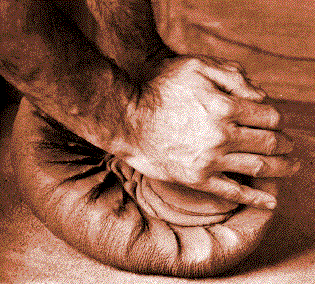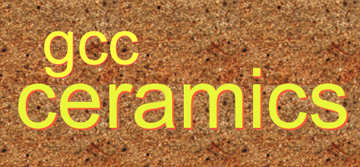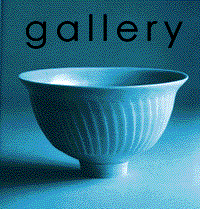PURCHASE OF CLAY RECEIPTS:
Clay is purchased at the College Bookstore in 25lb. bags. Due to the extreme variations in clay quality, workability, and firing temperatures it is essential that you use only clay purchased through the Bookstore. Bringing in clays from outside sources can easily result in your pottery melting in the very high temperatures we fire our kilns. We will not fire pottery made from unknown clay sources. Pay for the clay at the bookstore, save the receipt they give you, bring the receipt to us here in the lab and we will issue you the clay here. We can not issue clay without a receipt, so please don't ask. Here are the clays we will be using in this class:
B-MIX STONEWARE WITH GROG, Cone 10: Gray-white, medium fine-grained clay, suitable for pinch, coil or slab. Glaze colors show brightest color on white clays.
FAT RED STONEWARE, Cone 10: Dark reddish-brown, clay with grog, suitable for pinch, coil and slab. Glaze colors will be quite a bit darker on this clay.



